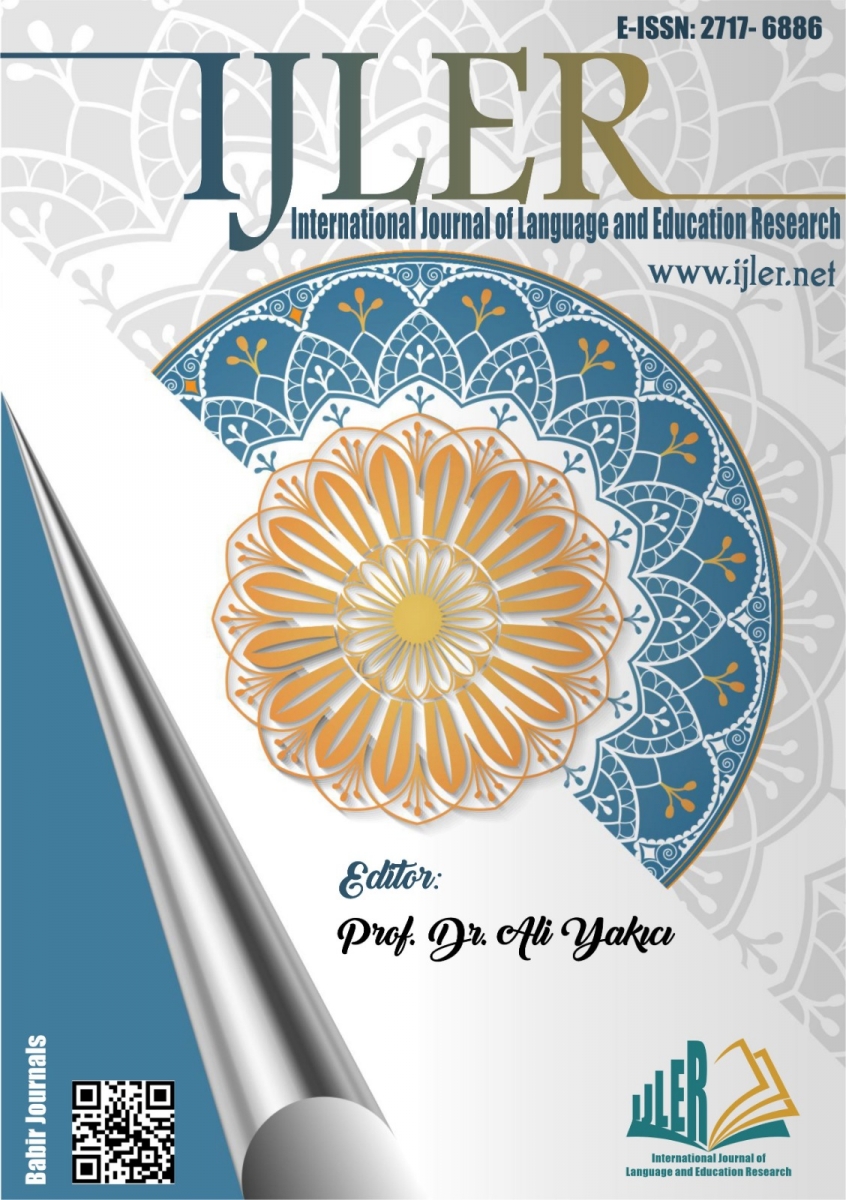Research article | Open Access
International Journal of Language and Education Research 2025, Vol. 7(2) 1-35
The Effect of Kahoot! -Based Learning on Students’ Computational Thinking and Language Learning Attitudes
pp. 1 - 35
Publish Date: August 31, 2025 | Single/Total View: 147/98 | Single/Total Download: 158/110
Abstract
Computational thinking is considered an essential 21st-century skill, improving problem-solving and creative thinking skills. Therefore, there is increasing attention being paid to integrating CT into education. Furthermore, Oman Vision 2040 highlights the significance of advancing and cultivating a skilled workforce, prioritising competencies like computational thinking. Studies conducted on higher education students revealed a gap in CT skills among higher education students. As a result, this study aimed to address this gap by exploring CT development in higher education, emphasising the integration of innovative teaching approaches like game-based learning, which engaged students in activities aligned with CT principles. A quasi-experimental design was employed, utilising pre- and post-tests, interviews, and Computational Thinking and Language Learning Attitudes questionnaires to collect data from 24 Foundation Programme students at Sultan Qaboos University. It is worth mentioning that the intervention was informed by the TPACK framework for task design and reinforced by Brennan and Resnick’s (2012) computational thinking dimensions, offering both pedagogical and learner-centred theoretical grounding. The results indicated a significant positive impact on both CT skills and language learning attitudes. Based on these findings, it is recommended that higher education curricula incorporate game-based learning to enhance CT skills and student engagement.
Keywords: Language Learning Attitudes, CT competencies, 21st century skills, Game-based learning, Higher Education students, critical thinking
APA 7th edition
Mahruqi, R.A., & Wyk, L.v. (2025). The Effect of Kahoot! -Based Learning on Students’ Computational Thinking and Language Learning Attitudes. International Journal of Language and Education Research, 7(2), 1-35.
Harvard
Mahruqi, R. and Wyk, L. (2025). The Effect of Kahoot! -Based Learning on Students’ Computational Thinking and Language Learning Attitudes. International Journal of Language and Education Research, 7(2), pp. 1-35.
Chicago 16th edition
Mahruqi, Raiya Al and Lee-Jean van Wyk (2025). "The Effect of Kahoot! -Based Learning on Students’ Computational Thinking and Language Learning Attitudes". International Journal of Language and Education Research 7 (2):1-35.
Adipat, S., Laksana, K., Busayanon, K., Asawasowan, A., & Adipat, B. (2021). Engaging students in the learning process with game-based learning: The fundamental concepts. International Journal of Technology in Education, 4(3), 542-552.
Applefield, J. M., Huber, R., & Moallem, M. (2000). Constructivism in theory and practice: Toward a better understanding. The High School Journal, 84(2), 35-53.
Asbell-Clarke, J., Rowe, E., Almeda, V., Edwards, T., Bardar, E., Gasca, S., ... & Scruggs, R. (2021). The development of students’ computational thinking practices in elementary-and middle-school classes using the learning game, Zoombinis. Computers in Human Behavior, 115, 106587.
Brennan, K., & Resnick, M. (2012). New frameworks for studying and assessing the development of computational thinking. Proceedings of the 2012 Annual Meeting of the American Educational Research Association, Vancouver, Canada.
Bodner, G. M. (1986). Constructivism: A theory of knowledge. Journal of chemical education, 63(10), 873.
Clark, K. R. (2018). Learning theories: Behaviorism. Radiologic technology, 90(2), 172- 175.
Creswell, J. W., & Plano Clark, V. L. (2017). Designing and Conducting Mixed Methods Research (3rd ed.). Sage Publications.
Field, A. (2018). Discovering Statistics Using IBM SPSS Statistics (5th ed.). Sage Publications.
Getie, A. S. (2020). Factors affecting the attitudes of students towards learning English as a foreign language. Cogent Education, 7(1), 1738184.
Islam, M. H. (2015). Thorndike theory and its application in learning. At-Ta'lim: Jurnal Pendidikan, 1(1), 37-47.
Koehler, M. J., Mishra, P., & Cain, W. (2013). What is technological pedagogical content knowledge (TPACK)?. Journal of education, 193(3), 13-19.
Krath, J., Schürmann, L., & Von Korflesch, H. F. (2021). Revealing the theoretical basis of gamification: A systematic review and analysis of theory in research on gamification, serious games and game-based learning. Computers in Human Behavior, 125, 106963.
Lodi, M. (2020). Introducing Computational Thinking in K-12 Education: Historical, Epistemological, Pedagogical, Cognitive, and Affective Aspects (Doctoral dissertation). Alma Mater Studiorum Università di Bologna. https://doi.org/10.6092/unibo/amsdottorato/9188
Moore, J. (1999). The basic principles of behaviorism. In The philosophical legacy of behaviorism (pp. 41-68). Springer Netherlands.
Nadeem, M., Oroszlanyova, M., & Farag, W. (2023). Effect of digital game-based learning on student engagement and motivation. Computers, 12(9), 177. https://doi.org/10.3390/computers12090177
Taopan, L. L., Drajati, N. A., & Sumardi, S. (2020). TPACK framework: Challenges and opportunities in EFL classrooms. Research and Innovation in Language Learning, 3(1), 1-22.
Vásquez, S., Peñafiel, M., Cevallos, A., Zaldumbide, J., & Vásquez, D. (2017). Impact of game-based learning on students in higher education. In EDULEARN17 Proceedings (pp. 4356-4363). IATED
Von Glasersfeld, E. (2001). Radical constructivism and teaching. Prospects, 31(2), 161- 173.
Vygotsky, L. S. (1978). Mind in society: Development of higher psychological processes. Harvard University Press.
Wang, A. I., & Tahir, R. (2020). The effect of using Kahoot! for learning–A literature review. Computers & Education, 149, 103818.
Wing, J. M. (2006). Computational thinking. Communications of the ACM, 49(3), 33–3
Zainuddin, Z., Chu, S. K. W., Shujahat, M., & Perera, C. J. (2020). The impact of gamification on learning and instruction: A systematic review of empirical evidence. Educational research review, 30, 100326.
